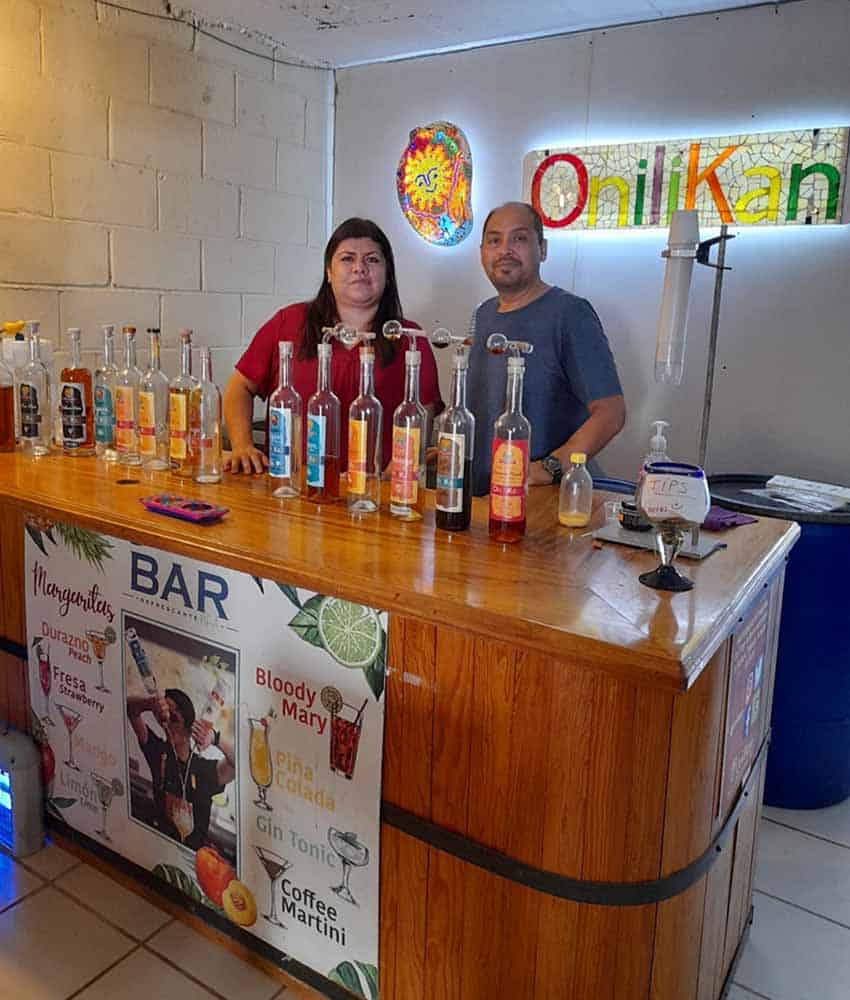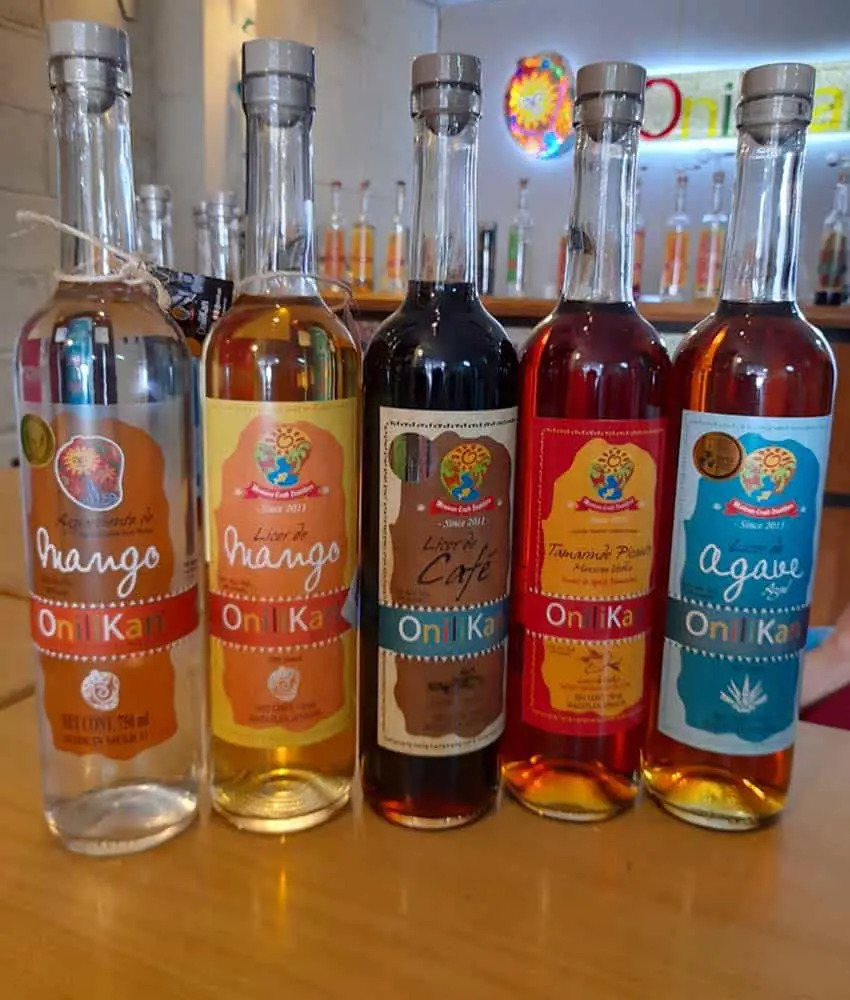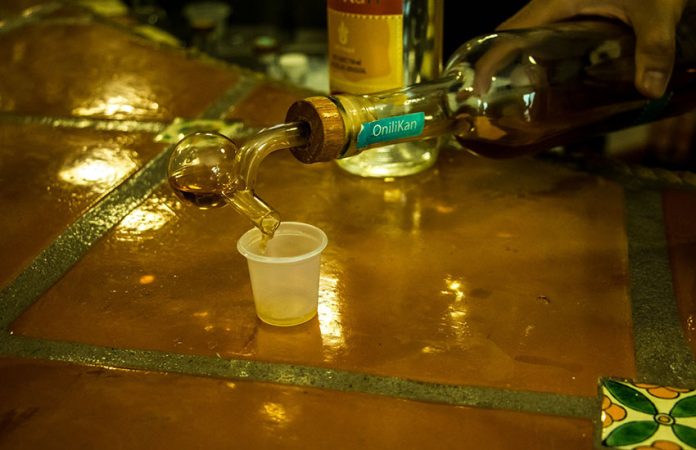There are mangoes aplenty in Mexico, and one small distillery in Mazatlán is putting the mango to good use, producing spirits and liqueurs.
Onilikan — which means “place of liquor” in Nahuatl — is making waves in the international spirits world with its craft liqueurs and spirits. Known as the only mango distillery in the world, they have won seven international awards for their products.
Onilikan was founded in 2011 by a group of five Canadian and Mexican families, but that’s not who owns it now: One of the founders had experience in the distilling industry in Canada, and another from Mexico was a scientist. Although they sourced their ingredients from Sinaloa, they were based in Canada. Their products were well-received and began winning awards — prior to the pandemic, the company distributed throughout Canada and the United States.
The owners eventually moved the company to Mazatlán to be closer to their source of mangoes but realized traveling between Canada and Mexico was too difficult and decided to sell.
In 2022, the company was purchased by a Mexican couple: Ana Paola and her husband, Manuel Castro. Ana had worked for the company since its inception and was already well-versed in the company’s operations and the distilling process.
“All the ingredients we use are natural and are sourced locally,” Ana says as she takes me through a tasting of their products. “We use no artificial flavoring or enhancements. That is one of the ways our products are unique.”
Until recently, the distilling process used a copper German pot still called an Aromat — the only one of its kind in Mexico. In August, they moved to a new location that couldn’t accommodate the Aromat still, so a shiny new copper-and-steel still sits prominently in the foyer ready to be installed.
Paola explains that “there are mango spirits produced by other companies, but they all use artificial flavoring for the mango taste. We use only the mango.”

The mangoes come from Paola and Castro’s groves and are picked in July and August when they are ripe and plentiful. They are then macerated in 100% blue agave and pressed to remove the pulp from the syrup.
“We use only 100% blue agave in our products,” Ana tells me. “We only have 10 or 12 agave plants right now, so we source the rest from local producers.”
Their other flavors include tangerine, coffee, tamarind and four spicy vodkas — tamarind and chile pepper, jalapeno, habanero, and chipotle. They also produce light and dark rums aged in oak barrels, and a Mexican gin made with an alcoholic base of blue agave, which is distilled three times to neutralize the agave’s flavor.
After the third distillation, they add botanicals of juniper, bay leaf, coriander and orange peel.
Ana opens a large barrel to show me tamarind macerating in alcohol. Grabbing a handful of it, she explains, “When the tamarind is ready, we will press out the alcohol for our tamarind base.” She pours me a sample of their Tamarind Picante vodka, which has a spicy taste.
They also sell a vanilla extract produced at the distillery. They infuse alcohol with vanilla beans in a large pot-bellied bottle sitting in a rack — where it will sit for months until it reaches the right flavor.
In all, Onilikan has 22 flavored spirits and liqueurs. Their two signature products are still the mango aguardiente (moonshine or firewater) and the mango liqueur, both of which have received bronze awards at the San Francisco International Spirits Competition. Their products have received a total of seven international awards, including at competitions in New York and Europe.
Paola and Castro continue to experiment with new flavors, but some don’t meet their high standards. They tried coconut, but Ana tells me, “The coconut oil would separate during the process and float to the top, leaving an oil film on your lips when you drank it.”

“We also tried hibiscus, but after fermentation, it would darken to an unappealing color, so we decided not to produce that,” she says. “It took us a year of testing coffee beans from different parts of Mexico for our coffee liqueur.” They finally decided on beans from Chiapas.
She gives me a sip of the coffee liqueur. I comment on the very strong coffee flavor.
“Let me show you how we like to serve it,” she says as she goes to the refrigerator. “Try this. It’s the coffee liqueur with evaporated milk.” I could easily drink a whole glass of this!
She shows me a small booklet of cocktails they’ve compiled, which she says she’s in the process of updating. She gets a lot of ideas from her customers.
For those who like grapefruit juice, there’s the Mango Girl, made with grapefruit juice, mango liqueur and gin, garnished with mint leaves. Martini drinkers, try the Mango Fire Tini — mango spirits with dry vermouth and olives. Their Mazatlán Cocktail uses their mango liqueur with their blue agave liqueur and a twist of orange peel.
Paola and Castro are very proud of their Mexican heritage, and that pride is reflected throughout their shop. In addition to their vanilla extract, they sell other culinary products produced in Mexico: dried chiles and herbs, moles, salsas, chocolate and even handcrafted kitchen linens.
Even their mango-shaped logo carries their sense of pride. Divided into quadrants featuring the sun, a deer, a palm and, at the bottom, a fish in blue water, it represents Mazatlán. It’s based on an original work of art by a Wixárika (Huichol) artist named Rosendo who uses symbolism from his culture to represent the city.
Onilikan’s promotional material explains the logo: “The sun, the palm, the river and the fish represent the land, a sacred place in the Huichol culture. The deer represents a messenger god called Tamatz Cauyuman who came to Earth to ensure bountiful harvests.”
Onilikan Licores is located at Avenida Insurgentes 23B in Alameda, by Gran Plaza. They offer free tours and tastings. They can be reached at 669-266-8165 or on their Facebook page. Their products can also be found outside Mazatlán as far away as Monterrey, Culiacán and San Francisco, California.
Sheryl Losser is a former public relations executive and professional researcher. She spent 45 years in national politics in the United States. She moved to Mazatlán in 2021 and works part-time doing freelance research and writing.
